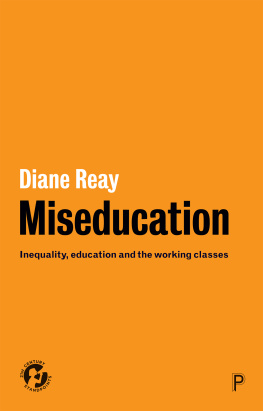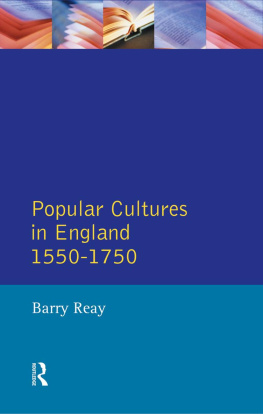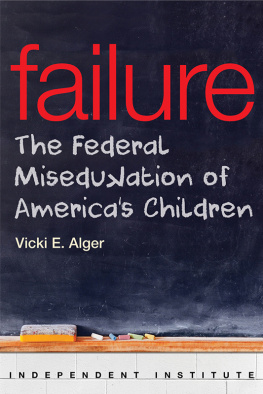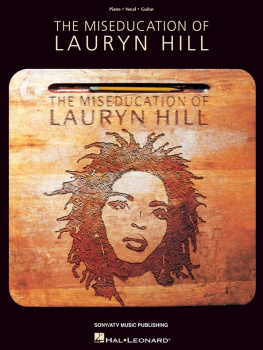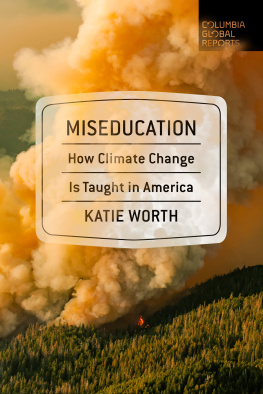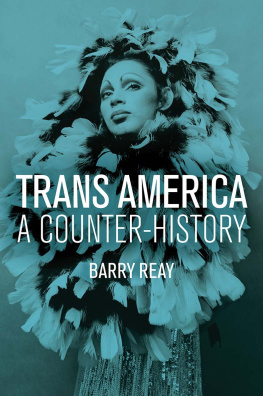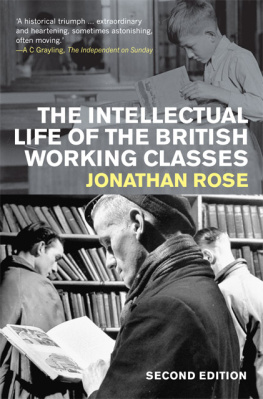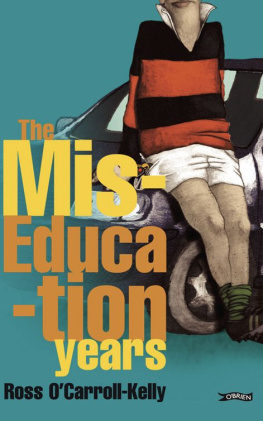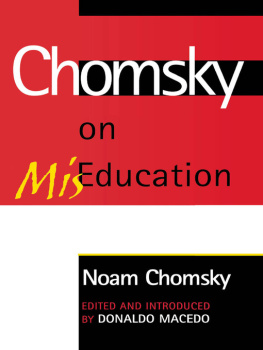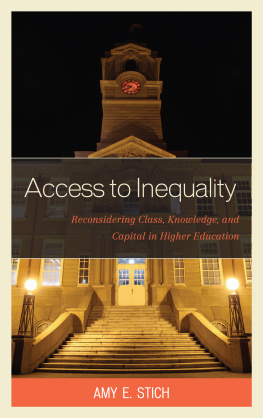Reay - Miseducation: inequality, education and the working classes
Here you can read online Reay - Miseducation: inequality, education and the working classes full text of the book (entire story) in english for free. Download pdf and epub, get meaning, cover and reviews about this ebook. City: Bristol, year: 2017;2018, publisher: Policy Press, genre: Politics. Description of the work, (preface) as well as reviews are available. Best literature library LitArk.com created for fans of good reading and offers a wide selection of genres:
Romance novel
Science fiction
Adventure
Detective
Science
History
Home and family
Prose
Art
Politics
Computer
Non-fiction
Religion
Business
Children
Humor
Choose a favorite category and find really read worthwhile books. Enjoy immersion in the world of imagination, feel the emotions of the characters or learn something new for yourself, make an fascinating discovery.
Miseducation: inequality, education and the working classes: summary, description and annotation
We offer to read an annotation, description, summary or preface (depends on what the author of the book "Miseducation: inequality, education and the working classes" wrote himself). If you haven't found the necessary information about the book — write in the comments, we will try to find it.
Reay: author's other books
Who wrote Miseducation: inequality, education and the working classes? Find out the surname, the name of the author of the book and a list of all author's works by series.
Miseducation: inequality, education and the working classes — read online for free the complete book (whole text) full work
Below is the text of the book, divided by pages. System saving the place of the last page read, allows you to conveniently read the book "Miseducation: inequality, education and the working classes" online for free, without having to search again every time where you left off. Put a bookmark, and you can go to the page where you finished reading at any time.
Font size:
Interval:
Bookmark:


First published in Great Britain in 2017 by
Policy Press University of Bristol 1-9 Old Park Hill Bristol BS2 8BB UK Tel +44 (0)117 954 5940 e-mail
North American office: Policy Press c/o The University of Chicago Press 1427 East 60th Street Chicago, IL 60637, USA t: +1 773 702 7700 f: +1 773-702-9756 e:
Policy Press 2017
British Library Cataloguing in Publication Data
A catalogue record for this book is available from the British Library.
Library of Congress Cataloging-in-Publication Data
A catalog record for this book has been requested.
ISBN 978-1-4473-3065-3 paperback
ISBN 978-1-4473-3066-0 ePub
ISBN 978-1-4473-3067-7 Mobi
ISBN 978-1-4473-3064-6 ePdf
The right of Diane Reay to be identified as the author of this work has been asserted by her in accordance with the Copyright, Designs and Patents Act 1988.
All rights reserved: no part of this publication may be reproduced, stored in a retrieval system, or transmitted in any form or by any means, electronic, mechanical, photocopying, recording, or otherwise without the prior permission of Policy Press.
The statements and opinions contained within this publication are solely those of the author and not of the University of Bristol or Policy Press. The University of Bristol and Policy Press disclaim responsibility for any injury to persons or property resulting from any material published in this publication.
Policy Press works to counter discrimination on grounds of gender, race, disability, age and sexuality.
Cover design by Lyn Davies
Readers Guide
This book has been optimised for PDA.
Tables may have been presented to accommodate this devices limitations.
Image presentation is limited by this devices limitations.
A trenchant portrayal of class processes in twentieth and early twenty-first century England. a must-read for all those interested in educational opportunities, the global economy, and the ways in which working-class individuals and collectivities construct and live under conditions of massively intensifying inequalities.
Lois Weis, State University of New York, University at Buffalo, USA, Author of Class Reunion: The Remaking of the American White Working Class
No one has done more than Diane Reay to confront the complex emotions in living class inequalities in education. Her heartbreaking volume bears damning witness to neoliberalisms contributions to the injuries of class.
Lynne Layton, Harvard Medical School
Miseducation is both intellectually compelling and inspiring in the way it systematically exposes the myth of meritocracy in economically unequal societies. It will inspire those who read it to work cooperatively for social justice both in education and society.
Kathleen Lynch, University College Dublin, School of Education
This searing critique of how schools and universities fail the working class and reproduce inequalities should be at the heart of contemporary debates on education.
Andrew Sayer, University of Lancaster
This book is dedicated to Emily Smart, my grandmother and the most positive influence on my childhood. She defied poverty and a lack of education to become a lay Baptist preacher, despite being a cleaner and the wife of a coal miner. She cared about everyone she met, shared what little she had and never judged. It is also dedicated to my grandchildren, Scarlett Saitowitz, Max Saitowitz, and Cato Gokita-Reay. I write because of the past but also because, above all, I want you to live in a fair, socially just world where all children are loved, respected and able to develop their potential regardless of creed, race, class and gender.

What are the 21st century challenges shaping our lives today and in the future? At this time of social, political, economic and cultural disruption, this exciting series, published in association with the British Sociological Association, brings pressing public issues to the general reader, scholars and students. It offers standpoints to shape public conversations and a powerful platform for both scholarly and public debate, proposing better ways of understanding, and living in, our world.
Series Editors: Les Back, Goldsmiths, Pam Cox, University of Essex and Nasar Meer, University of Edinburgh
Forthcoming titles in this series:
Making sense of Brexit by Victor J. Seidler
Snobbery by David Morgan
Whats wrong with work? by Lynne Pettinger
Money by Mary Mellor

Diane Reay grew up in a working-class coal-mining community before becoming an inner-city primary school teacher for 20 years. She is now Emeritus Professor of Education at the University of Cambridge and visiting Professor of Sociology at the London School of Economics and Political Science, with particular interests in social justice issues in education, and cultural analyses of social class, race and gender. She has researched extensively in the areas of social class, gender and ethnicity across primary, secondary and post-compulsory stages of education.
My thinking has benefited from the ideas and insights of many people. Firstly, the colleagues I have collaborated with on research projects over a period of 20 years: Louise Archer, Madeleine Arnot, Stephen Ball, Phoebe Bedell, Jackie Brine, John Clayton, Gill Crozier, Miriam David, Fiona Jamieson, Becky Francis, Val Hey, Sumi Hollingworth, David James, Cath Lambert, Carole Leathwood, Helen Lucey, Heidi Mirza, Caroline Oliver and Katya Williams.
I have also benefited greatly from conversations with Kathleen Lynch, Jessica Gerrard, Christy Kulz, Karin Doolan, Garth Stahl, David Pomeroy, Sophie Wee, Derron Wallace, Mona Jebril, Cora Xu, He Li, Lucy Howson, Birgland Magnsdttir, Jessie Abrahams and Sol Gamsu.
More specifically in relation to this book I owe a debt of gratitude to the two people who read my draft and gave me feedback. Les Back commented on my first full draft, while Julian Meteyard, as always, provided honest, unflinching reflections throughout the writing process.
The biggest debt though, as always, is to the parents and young people who gave so generously of their time and expertise. I hope I have done them justice.
Figures |
Tables |
BME | black and minority ethnic |
DfE | Department for Education |
FSM | free school meals |
HESA | Higher Education Statistics Agency |
NUT | National Union of Teachers |
OECD | Organisation for Economic Co-operation and Development |
PISA | Programme for International Student Assessment |
SATs | standardised assessment tests |
Education and the Working Class a much broader web of social relationships, including those of life style, educational experiences and patterns of residence. As will become evident throughout the book, the lived experiences of the working classes whom I am trying to portray are also lived relationships both with their class others as well as with those who share the same class.
Font size:
Interval:
Bookmark:
Similar books «Miseducation: inequality, education and the working classes»
Look at similar books to Miseducation: inequality, education and the working classes. We have selected literature similar in name and meaning in the hope of providing readers with more options to find new, interesting, not yet read works.
Discussion, reviews of the book Miseducation: inequality, education and the working classes and just readers' own opinions. Leave your comments, write what you think about the work, its meaning or the main characters. Specify what exactly you liked and what you didn't like, and why you think so.

